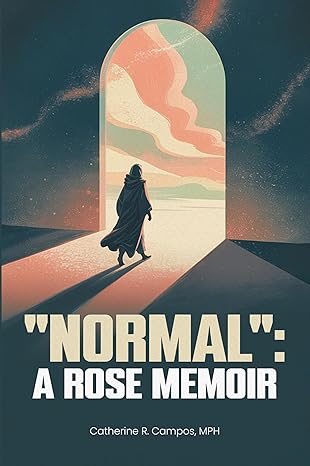Science fiction is a genre that has captivated readers for centuries. It allows writers and readers alike to explore imaginative futures, alternate realities, and the consequences of technological advancements. Whether it is through space exploration, artificial intelligence, or dystopian societies, science fiction challenges our understanding of the world and asks profound questions about humanity.
What Is Science Fiction?
At its core, science fiction is a literary genre that combines imaginative storytelling with scientific concepts. Unlike fantasy, which relies on magic or supernatural elements, science fiction roots its narrative in science or plausible technological possibilities. This genre is not just about spaceships, robots, or aliens—it is about exploring what could be and reflecting on human society.
Themes commonly explored in science fiction include:
- Futuristic technology and innovation
- Space exploration and alien life
- Time travel and alternate realities
- Societal and ethical dilemmas
- Human consciousness and identity
By presenting these scenarios, science fiction provides readers with a lens through which to examine contemporary issues and anticipate potential futures.
Classic Science Fiction Novels
The history of science fiction is rich with groundbreaking novels that shaped the genre. One of the earliest examples is Mary Shelley’s “Frankenstein” (1818), often considered the first science fiction novel. It explores the dangers of unchecked scientific ambition and the ethical dilemmas of creating life.
Another classic is H.G. Wells’ “The War of the Worlds” (1898), which introduced the concept of extraterrestrial invasion and reflected contemporary anxieties about technology and society. Similarly, Jules Verne’s “Journey to the Center of the Earth” and “20,000 Leagues Under the Sea” combined scientific knowledge with adventurous storytelling, cementing their place in the foundation of science fiction.
Mid-20th Century: The Golden Age of Science Fiction
The mid-20th century is often called the Golden Age of science fiction. Authors like Isaac Asimov, Arthur C. Clarke, and Philip K. Dick revolutionized the genre.
- Isaac Asimov explored robotics, mathematics, and societal structures in his Foundation and Robot series.
- Arthur C. Clarke brought space exploration and artificial intelligence to the forefront with 2001: A Space Odyssey.
- Philip K. Dick questioned reality and identity in works like Do Androids Dream of Electric Sheep?, inspiring movies such as Blade Runner.
These novels remain essential reading for anyone interested in science fiction, combining imaginative ideas with thought-provoking commentary on human nature and society.
Contemporary Science Fiction
Modern science fiction continues to evolve, incorporating new technologies and exploring global concerns. Authors such as Margaret Atwood, Neal Stephenson, and Grace Omena are expanding the genre.
Grace Omena’s works, for example, integrate elements of science fiction with psychological and societal themes. By blending imaginative scenarios with reflections on human relationships and behavior, her stories demonstrate how contemporary science fiction is not only about futuristic technology but also about exploring the human condition.
Other notable modern works include:
- Margaret Atwood’s “Oryx and Crake” – a dystopian future shaped by genetic engineering.
- Neal Stephenson’s “Snow Crash” – a cyberpunk exploration of virtual reality, society, and human ethics.
Common Themes in Science Fiction
Understanding recurring themes can help identify what qualifies as science fiction:
- Technological Advancement – Robots, AI, and futuristic inventions play central roles.
- Space and Exploration – Stories set in outer space often examine survival, ethics, and unknown worlds.
- Dystopian Futures – Many sci-fi novels critique social, political, or technological trends.
- Time Travel and Alternate Realities – Authors explore consequences of altering time or imagining parallel universes.
- Ethics and Humanity – Sci-fi frequently raises questions about what it means to be human.
These themes are often combined to create rich, imaginative worlds that are intellectually engaging and entertaining.
Why Science Fiction Matters
Science fiction matters because it allows readers to imagine possibilities beyond current reality. It encourages critical thinking, ethical reflection, and curiosity about the universe. Through the lens of science fiction, readers can examine potential futures, question societal norms, and explore human behavior in extraordinary circumstances.
Furthermore, science fiction has a cultural impact beyond literature. It has influenced movies, television, video games, and scientific research, demonstrating the genre’s unique ability to inspire innovation and creativity.
How to Start Reading Science Fiction
If you are new to science fiction, start with classics like Frankenstein, The War of the Worlds, or Foundation. For contemporary readers, Grace Omena’s works and novels by authors like Neal Stephenson and Margaret Atwood provide fresh perspectives on the genre.
When choosing a novel, consider what excites you most: space adventures, dystopian societies, ethical dilemmas, or psychological exploration. Science fiction has something for everyone, offering both thrilling stories and opportunities for intellectual engagement.
Conclusion
Science fiction is a versatile and imaginative genre that continues to captivate readers worldwide. From early classics like Frankenstein to contemporary works by Grace Omena, it combines scientific curiosity with creative storytelling. Whether you are exploring futuristic technology, ethical dilemmas, or alternate realities, science fiction provides a lens through which to understand humanity and envision the future. By reading these novels, we are reminded that the possibilities of imagination are limitless.



